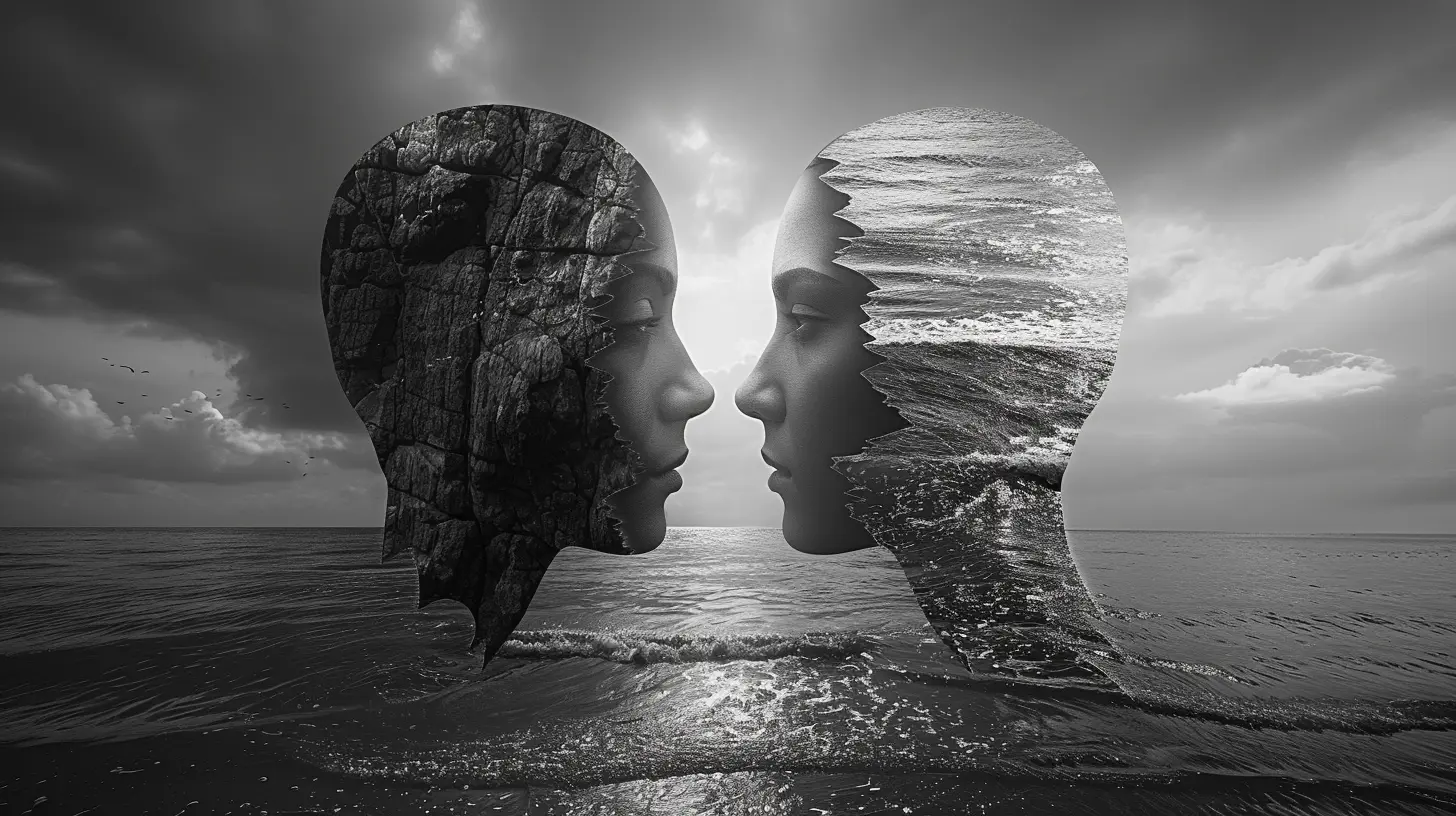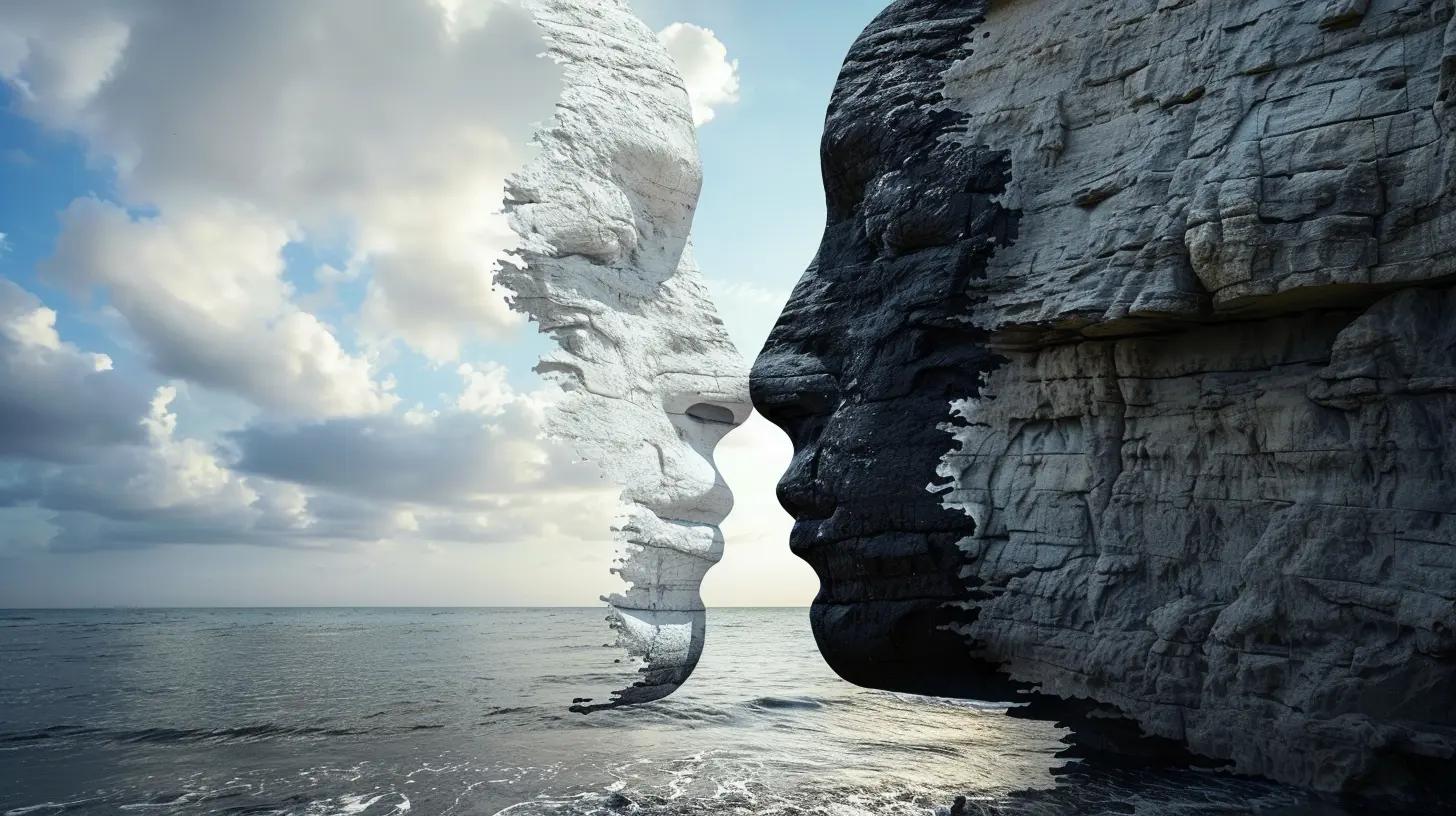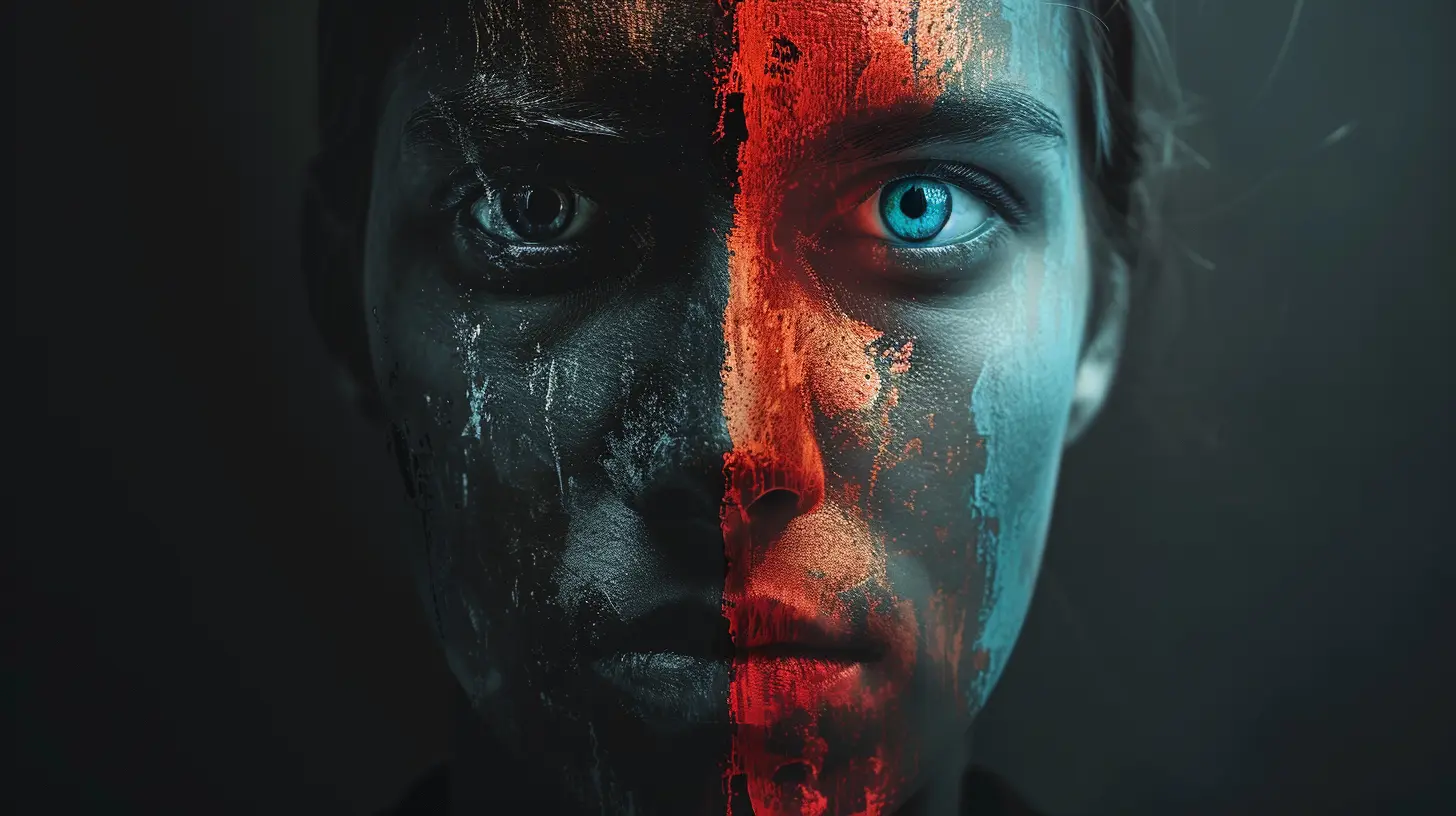The Contrast Effect: How Comparisons Distort Perception
12 August 2025
Ever noticed how a $50 shirt seems expensive—until you see it next to a $200 one? Suddenly, that $50 shirt is a steal. That, my friend, is the contrast effect in action. It’s sneaky, it’s powerful, and it’s messing with your head more than you think.
In psychology, the contrast effect is a cognitive bias that changes how we perceive things based on what we’ve just experienced. It tricks our brains into making judgments not based on absolute facts, but on comparisons. Whether it’s how we judge people, make decisions, or even feel about ourselves—this bias shows up constantly in our lives. Let's dig in and unpack how this mental illusion shapes our reality.

What Is the Contrast Effect?
To put it simply, the contrast effect occurs when the evaluation of one stimulus is influenced by another stimulus that was encountered recently. So, when you see or experience something extreme, it alters your perception of what comes next.Imagine tasting a bitter coffee, then trying a mildly bitter one right after. The second cup seems way milder than it actually is, all because your brain is still reacting to the first nasty sip. See how it works?
The contrast effect isn’t just about taste. It plays with your sense of judgment in hiring decisions, pricing, romantic relationships, self-esteem, and even in how you interpret someone’s personality.

Real-Life Examples You’ve Probably Experienced
Sometimes, the best way to understand psychology is to spot it in your own life. And if you think you haven’t been influenced by the contrast effect—think again. Here are a few everyday situations where it shows up:1. Shopping and Pricing Tricks
Retailers are masters at using the contrast effect. Ever noticed those “original price: $199, now $49” tags? That $49 looks like a bargain only because your brain anchored to the higher price first. It’s a mental illusion, and it works like a charm.Even in high-end stores, placing a super pricey item next to a slightly less expensive one makes the latter seem more reasonable—even if it’s still overpriced.
2. Job Interviews
Let’s say you're one of five candidates being interviewed. If the person before you was unimpressive, guess what? You’d look better by comparison, even if you're average. But if the person before you was a rockstar, your performance might seem a lot weaker than it actually was.This can seriously sway hiring decisions. Our brains can’t help but compare.
3. Physical Attractiveness
It’s not nice, but we all do it. When we see someone who’s extremely good-looking, anyone average-looking next to them might seem less attractive. The opposite is also true—being around less attractive people might make someone appear more appealing than they truly are.TV shows and movies play on this all the time with the concept of the “best friend” character being slightly less attractive than the star.
4. Social Media and Self-Worth
Scrolling through Instagram and seeing someone with a six-pack on the beach? Boom—your self-esteem takes a dive. Why? Because you're subconsciously comparing yourself to someone who's curated their best moments.In reality, nothing changed about you, but your perception of yourself shifted. That’s the contrast effect using your feed as fuel.
5. Performance Reviews at Work
If one employee just made a huge sale or reached an impressive milestone, others who are doing their jobs well but not spectacularly might get overlooked. Again, it’s not about your actual performance—it’s about how your performance looks in comparison.
The Contrast Effect Vs. Other Biases
It’s easy to confuse the contrast effect with other mental shortcuts, so let’s set some things straight:- Anchoring Bias: This involves relying too heavily on the first piece of information you get. The contrast effect, though, is more about how one thing seems relative to another, not just the first thing you saw.
- Priming: When exposure to one stimulus affects your response to another later on. Contrast is more about comparison than influence.
- Halo Effect: This is when your overall impression of a person influences how you feel about their character. The contrast effect, in comparison (pun intended), is about how one subject affects the perception of the next.
So, while they may overlap in some situations, contrast has its own flavor of distortion.

Why Does the Contrast Effect Happen?
Let’s get nerdy for a second. Our brains try to make sense of the world by comparing things. It's efficient. If we judged every decision, every person, every situation from scratch, we’d burn out fast.So, instead of asking “Is this person smart?” we ask, “Are they smarter than the last person I just spoke to?” It’s a shortcut—one that usually serves us well. But these mental hacks come with trade-offs, and contrast effect is a classic example of things going sideways.
Psychologists believe that the contrast effect stems from how our sensory system and cognitive judgments work. When two things are experienced close together in time, our perception of the second is affected by the first. It’s like your brain’s version of “you don’t know what you’ve got till it’s gone”—except in real time.
The Contrast Effect and Decision-Making
This isn’t just a party trick of the mind—it has serious implications.In Marketing
Brands use contrast to manipulate your buying decisions. Showing you the “expensive” version first makes the regular version seem more affordable, even if it’s still pricey.In Relationships
Ever date someone amazing and then meet someone who's just okay? Chances are, the okay person seems even less impressive than they really are. On the flip side, after a bad relationship, someone decent can look like a superstar.In Legal Settings
Studies show that jurors’ sentencing decisions can be influenced by previous cases. If they just sentenced someone to 20 years for a violent crime, they might go easier on the next defendant—unless that contrast makes the new case seem worse.Crazy how biased our supposedly “rational” brains can be, huh?
Can the Contrast Effect Be Helpful?
Actually, yes. Like any cognitive bias, the contrast effect isn’t always a villain. Sometimes, it gives us useful shortcuts.- In sales, you can use it to make offers seem more appealing by smart comparison.
- In presentations, leading with a weak point before dropping your strong message can enhance the effect.
- Even in personal life, understanding this can help us frame conversations or negotiations for better outcomes.
But like fire, just because it can help doesn’t mean it’s not dangerous too.
How to Outsmart the Contrast Effect
Now that you know this mental trick exists, can you beat it? Sort of.1. Be Aware
Honestly, just knowing the contrast effect exists puts you ahead of the game. Next time you’re in a store or on a date or making an important choice, stop and ask: “Am I judging this thing on its own merit—or just compared to the last thing I saw?”2. Slow Down Your Decisions
When you give yourself time, you’re less likely to make impulsive comparisons. Pause. Breathe. Make decisions with the big picture in mind, not just what’s right in front of you.3. Reframe the Context
Try to look at each option individually and objectively. Don’t fall into the trap of always comparing. Make it a habit to ask, “Would I feel the same about this if I hadn’t just seen that other option?”4. Watch for Manipulation
Marketers, influencers, even friends—they might be using contrast (intentionally or not) to sway your opinions. Keep a lookout. If something seems too good or too bad, you might be caught in a contrast trap.
Final Thoughts
The contrast effect is a powerful reminder that our minds are not as rational as we like to think. We compare—constantly—and those comparisons shape our beliefs, decisions, and emotions in ways we often don’t realize.But awareness is power. Once you can spot the contrast effect in action, you can start making decisions based on reality—not mental illusions. So next time something feels “too good to be true” or strangely underwhelming, ask yourself: “Compared to what?”
You might just see things a little more clearly.
all images in this post were generated using AI tools
Category:
Psychological BiasAuthor:

Matilda Whitley
Discussion
rate this article
1 comments
Selkie Ward
The Contrast Effect illustrates how our perceptions can be skewed by comparisons, highlighting the importance of contextual influences in decision-making and judgment.
August 22, 2025 at 4:48 PM

Matilda Whitley
Thank you for your insightful comment! The Contrast Effect indeed emphasizes how our judgments are shaped by context, reminding us to be mindful of comparisons in decision-making.


